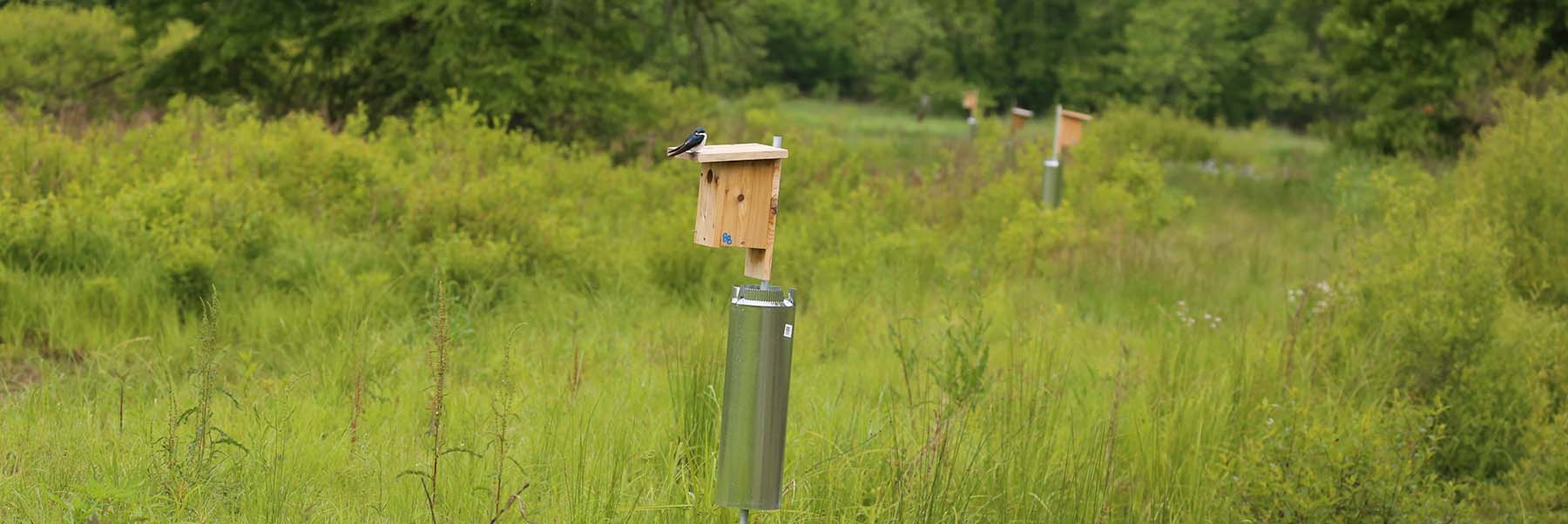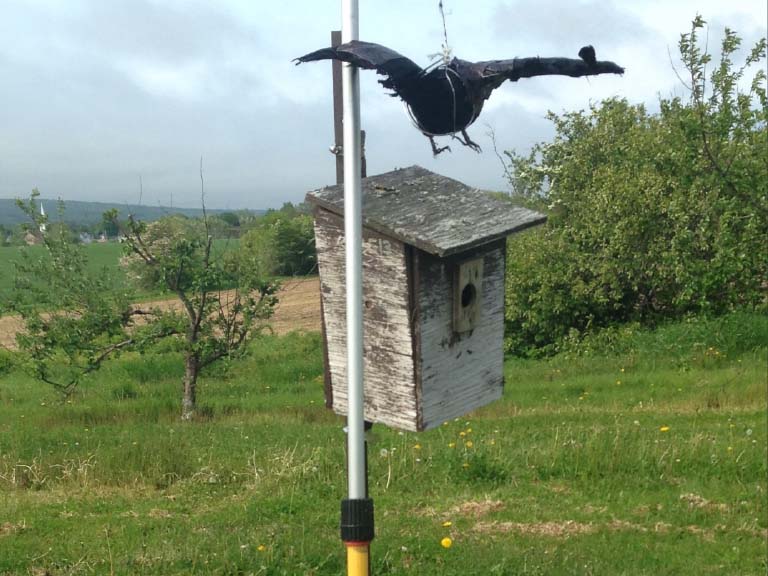We have known for years that more aggressive females are able to secure a breeding territory -- they get to breed when less aggressive females do not (Rosvall 2008). But even among females who do obtain a nesting site, there is marked variation in aggressiveness. Does aggressiveness shape reproductive success? How about longevity or other elements of Darwinian fitness?
To address these questions, my lab has assembled a dataset of ~3000 tree swallows, including > 150 breeding attempts each year for nearly a decade. Outside of studies of mammalian dominance hierarchies, this is the most comprehensive long-term dataset on competitive behavior in wild female animals. We have multi-phenotype data on all chicks, mothers, and adults, including ~500 aggression scores obtained from hundreds of females, some for multiple years from their birth to their death. Current members have begun mining these data, and we are partnering with IU's ASURE program to use this database to begin population genetic analyses as well.



